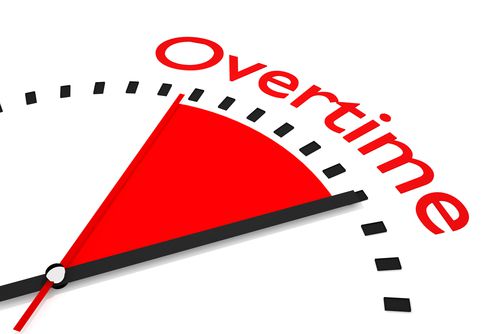Federal law and its interpretations are constantly changing. It’s our job as labor relations attorneys in South Carolina to know the updates as they happen and advise our clients to the best of our ability.
The New Federal Overtime Rule
In October, we wrote about a new federal overtime law that required overtime compensation for non-exempt employees earning less than $47,476 per year in salary. This new law raised the salary threshold for exemption from overtime pay from $23,660 to nearly $47,500 per year. The new overtime law was slated to take effect this month, so many employers and human resource departments have been scrambling to track hours for employees who were previously not required to do so, change employees from salaried to hourly and give raises above the new salary threshold. However, in response to a legal challenge and just ten days before the new overtime law’s implementation date, a federal judge in Texas has put a temporary stop to the change that would affect 4.2 million American workers.
Injunction Issued Regarding Overtime Rule
Nevada’s attorney general filed an emergency motion for a preliminary injunction in October in the federal courts in Texas and was joined by 21 states and business groups. The parties argued the change in overtime rules would cause irreparable harm to businesses. The judge agreed and ruled that the federal law governing overtime doesn’t allow the Labor Department to decide which workers are eligible based on salary levels alone. The judge issued a nationwide temporary injunction stopping the overtime rules from taking effect on December 1. However, many payroll companies and businesses have already made the changes that were scheduled to be in effect by the first of this month. The judge’s ruling allows employers to unravel the changes that may have been made (like switching employees from salaried to hourly, or giving employees raises to exceed $47,476 per year) or to keep the changes they made in place.
New Overtime Law on Shaky Ground
The new overtime law will remain on shaky ground for some time. The Texas judge’s ruling has been appealed to the U.S. Court of Appeals for the Fifth Circuit in New Orleans, Louisiana, but the Labor Department may drop the appeal given the new administration taking office in January 2017. An appeal could take months and could end up in the U.S. Supreme Court. Even if the Labor Department wins on appeal, the Republican-controlled Congress could upend the rule with legislation, or the new Labor Department staffed by President Elect Donald Trump may withdraw the rule.
The preliminary injunction issued by the Texas federal judge does put a stop to the law’s taking effect and preserves the status quo, which is the salary level of $23,660, while the court determines the rule’s validity. For now, the new overtime rule will NOT take effect as planned, but could still be implemented later. Employers may continue following the current overtime rules, which were established in 2004 and may wish to put a hold on reclassifying employees as nonexempt. What course of action to take will depend on each employers’ circumstances and what impact any further changes will have for employee morale. Please also remember that changes in terms of employment require 7 days written notice in South Carolina.
Contact an experienced employment lawyers at Gignilliat Savitz & Bettis LLP to assist your business in navigating the federal overtime laws.






